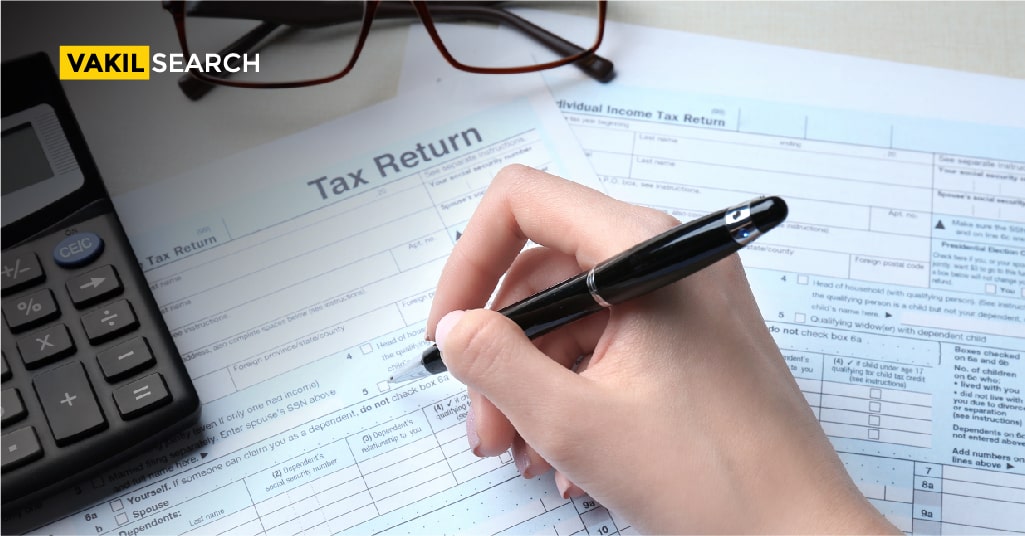Sole proprietorship is a simple business form and therefore many Indians start their businesses like this. Since the whole business is carried by one person, the sole proprietor also has to file income tax returns.
ITR form for Sole Proprietorship
The first step is to fill the ITR form. Before you file it, you must have information about these two types of ITR forms:
ITR form 3: This form is filed by a sole proprietor who is engaged in a proprietor business. This form contains details about the Balance sheet and profit/loss account of the proprietor. And these details are mandatory.
ITR form 4: Now, this is an income tax return form for all those taxpayers who:
Have chosen presumptive income type under sections 44AD, 44ADA, and also 44AE.

Empower Your Business With Expert Precision – Our Top-Tier Bookkeeping Service for a Seamless Financial Journey!
What are the due dates for filing a Sole Proprietorship ITR ?
Now you know the forms that you need to fill. Next step is to know the dates for filing these forms. There are different deadlines for filing based on whether the business needs an auditing under Income Tax Act, 1961: https://incometaxindia.gov.in/pages/acts/income-tax-act.aspx. And, also, whether it has engaged in any international business activities.
| Type of sole proprietorship | Due date for ITR forms |
| Businesses that don’t need any auditing to file their income tax returns | 31st of July |
| Businesses that go through auditing process | 30th of September |
| Businesses with overseas transactions | 30th of November |
When does auditing become necessary for sole proprietorship firms?
Audit criterion is based on the turnover of the business. It is known as ‘Tax Audit’ and has to be processed by a Chartered Accountant (CA) under section 44AB of the IT Act.
The tax auditing threshold limit is decided u/s 44AB as following:
- For business entities the tax auditing is required if the gross turnover, receipts, sales exceeds 1 crore.
- For professionals, the limit decreases to 50 lakhs.
Unless your business is falling under the above two categories, you don’t need to conduct an auditing.
But of course there are a few exceptions that you must know:
Your financial well-being, our priority – use our Income Tax Calculator for precise planning.
Steps To File an Income Tax Return for a Proprietorship
- PAN card credentials are needed to file an ITR. So, the first step is to get a PAN card made. If you already have it, you can proceed with the further steps.
- Open the e filing system of the Income Tax Department and register your PAN on it. In case you have already registered, just log in using PAN details and your password.
- Go to the ‘E-File’ tab on the top, find the ‘File Income Tax Return’ option and click on it.
- Now, select the assessment year. For example, for ITR of FY 2022-2023 select Assessment Year 2023-2024.
- Select mode of filing as ‘Online’ and then click ‘Continue’. A window will open where you have to click on ‘Start New Filing’.
- Select the ‘Individual’ status and next click on ‘Continue’.
- The next step is to select the ITR form type. Select from ITR 3 or ITR 4 as per suitable for your business (as mentioned above). After selecting the form type, click on ‘Let’s get started’.
- Fill the required details in the ITR form and click on ‘Proceed’.
- Click on ‘Preview Return’. A window will appear. Enter your declaration of the correctness and completeness of the details in the form. Once you have entered the declaration, click on ‘Proceed to Validation’.
- Check the ITR preview. Once you check the details and find everything correct, click on validation.
- ITR validation is done through two ways— either Aadhar OTP or EVC (electronic verification code). There are two more options to choose— ‘E-verify later’ that is done within 120 days or send an I-TVR copy to the Income Tax Department.
Our legal experts at VakilSearch will help you file your taxes in an easy way.
FAQs on ITR (Income Tax Return) in India
Are there any consequences of non-filing of ITR of a proprietor?
Yes, in case of non-filing ITR a person has to pay a penalty as per section 234F of the Income Tax Act. The penalty renegades from ₹ 1000-10,000.
Is it possible to make changes to ITR after submission?
Yes, before the assessment begins, you have plenty of time to update your ITR. As long as the deadline is met, there are no penalties imposed. Before that, you can update any details to correct the information.
Are sole proprietors taxed twice or double a corporation?
Fortunately, no! Sole proprietors are not considered as separate from their firms. Therefore, they are not required to double taxation.
Conclusion
So simply put, a sole proprietorship is a small business run by an individual. They don’t require registration, are fuss free, and therefore easy to run and manage. Because of its simplicity, sole proprietorship is on the rise in India.
Are you thinking of starting one? Want to know more about ITR and other details? Our legal professionals at VakilSearch can guide through the whole process and also make it completely hassle free for you.
Must Read Topics:


